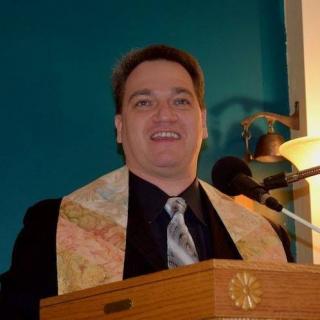Does Your Congregation Provide Trauma Support to Members?
By David Pyle

Rev. David Pyle, CER Congregational Life Staff
At one time in our country people joined a religious community because it was expected that they do so. At the heart of what they sought within the community lay a societal norm and a sense of “Being Human Religiously” to quote James Luther Adams. They came seeking social and spiritual connection and grounding, for themselves and for their children. And Church was the primary place that you could find these social and spiritual connections.
That has changed. Now our culture offers a plethora of opportunities for both social and spiritual connections, and for a sense of grounding and foundation from which life can be lived. In essence, the traditional church found that it had competition, and it has struggled to let go of the assumptions of the role and place church should play in a society.
I believe there is a different trend that draws people into religious community today. People may stay in a congregation because of the community, the connection, and the sense of grounding, but that is not what draws them to a religious community anymore.
When I was in Parish Ministry, it was part of my practice to offer to meet with visitors, one on one. Not all would take me up on it, but many did, and what I learned was that almost every person who came into our doors fell into one of two patterns. Either they had attended a Unitarian Universalist congregation somewhere before and had just moved to our town, or they had recently experienced a trauma in their life.
Trauma is one of those words that gets thrown around a lot, so let me tell you what I mean. Trauma is experiences of our physical, mental, and spiritual being that disrupt our sense of safety, integrity, or identity. Trauma is an experience where a person’s core assumptions about themselves, their family, their community, and even their country are challenged in such a way that they can no longer hold.
Human beings experience trauma, and some people experience more of it than others. One way to understand privilege in our society is that those individuals with privilege experience trauma less, because society is less likely to challenge their core assumptions. Other people experience trauma on a daily basis, because society challenges or negates core aspects of their identity, body, relationships, and ideals every day. Each of us deals with trauma differently, but we all experience it.
What I learned listening to those who were visiting our church was that most had recently had an experience in their life that challenged their core assumptions about themselves, their family, their community, or their country. Often several experiences… and seeking to recover from this trauma what convinced them to get out of bed that Sunday morning and first come to a Unitarian Universalist congregation.
How does it change the way we seek to bring people into our religious communities if we realize that many are not just seeking a spiritual, religious, or secular community, but that they have come because they are hurting? Because something has challenged a core sense of themselves? That they are coming because of a deep need created by a trauma to their sense of identity, safety, body, relationships and ideals? Especially when you consider that those already within the religious community will also experience their own trauma?
When I offer workshops on new member integration programs, I offer that a congregation should let go of the desire to tell people about the church, and foster a desire to help visitors tell their own stories of their lives. That a congregation should develop a practice of deep listening to visitors, to hear their stories, and to help people express who they are and what they need from a religious community. I share that we do not build a sense of connection with visitors through programs, but through relationships with people. And often, that begins with a relationship with just one person. It begins with the visitor making a friend who will listen to the pain that brought them to church that morning.
While I do believe that membership programs that realize that many who are exploring a congregation are integrating some trauma in their lives are more successful at gaining new members, that is not my point. My point is that this is a ministry to individuals and to the world that we need to be doing. We have the gift that people come to our doors when they are hurting because something somewhere makes them believe that we can help. And we… we need to be worthy of that belief.
Rev. David Pyle
CER Congregational Life Staff